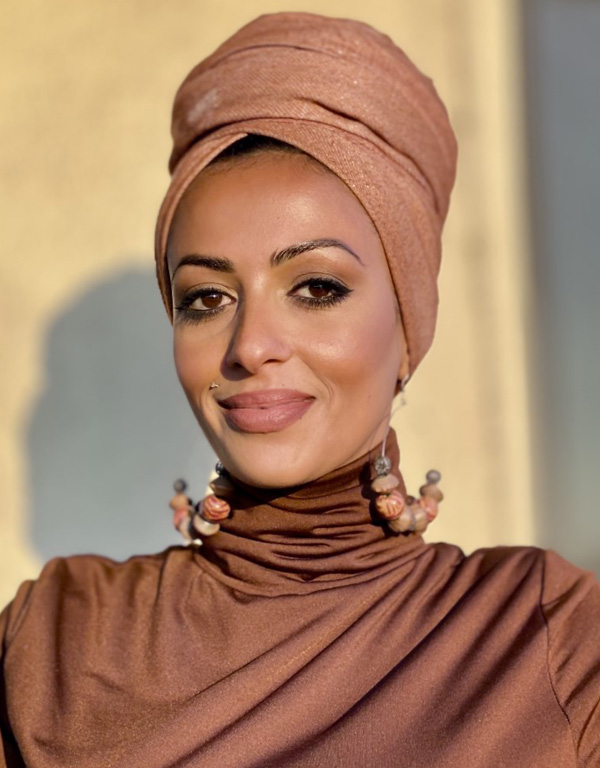Marwa Ghazali
 Assistant Professor
Assistant Professor
Anthropology
Ph.D. University of Kansas, KS
Email: mghazali@uh.edu
Download CV
Biographical Summary
Dr. Marwa Ghazali is a cultural and medical anthropologist whose interdisciplinary expertise spans African and African Diaspora Studies, Middle Eastern Studies, Muslim Studies, Islamic Studies, Peace and Conflict Studies, and Biology. Her research centers on displacement and migration, (infra)structural oppression, urban precarity, health inequalities, and the politics of death and dying. Through multi-sited ethnographic fieldwork combined with historical and archival research, Dr. Ghazali illuminates the lived dimensions of violence and delineates the structural forces shaping (im)mobility, morbidity, and mortality among marginalized communities across Africa, the Middle East, and the United States.
Dr. Ghazali is currently working on her book project, City of Living-Death, which draws on archival, historical, and ethnographic research with Egyptians informally residing in tombs within Cairo’s medieval necropolis, the “City of the Dead.” Over the past two centuries, this cemetery has become home to displaced rural and urban families unable to afford housing. In response, residents have transformed tombs into homes and cemeteries into vibrant social spaces. Since 2020, state-led demolitions have begun displacing these communities and unearthing graves to make way for urban development. City of Living-Death explores these entanglements and offers a critical lens on necropolitics in the Nile Valley.
In addition to her work on death and displacement in Northeast Africa and the Middle East, Dr. Ghazali is researching the politics of life and death within Arab, Middle Eastern, and Afrodiasporic Muslim communities in Houston, Texas. Dr. Ghazali was most recently a W. E. B. Du Bois Research Fellow at the Hutchins Center for African and African American Research at Harvard University. She has extensive teaching and advising experience in Anthropology, African and African American Studies, Humanities, Peace and Conflict Studies, Women, Gender, and Sexuality Studies, and Arabic and Islamic Studies at institutions across the United States, Africa, and Europe. She has mentored undergraduate and graduate students as well as student organizations. Previously, Dr. Ghazali served as Ethnographic Research Coordinator at the Kansas African Studies Center and currently sits on the Editorial Board of the Sage Handbook of Cultural Anthropology. Beyond academia, she has collaborated with NGOs and INGOs on issues related to health and displacement in the Middle East and North Africa.
Selected Publications:
Ghazali, Marwa. 2021. “City of Living-Death: Urban Precarity and Social Transformation in an Egyptian Cemetery.” City & Society 33 (2): 346–63.
Ghazali, M., Bennett, M. and Pedersen, L. 2020. “Legacies Review,” Film and Video. General Anthropology, 27: 13-15.
MacGonagle, Elizabeth and Marwa Ghazali. November 12, 2016. “In the Wake of a Midwestern Terrorism Plot.” The Huffington Post. https://www.huffingtonpost.com/entry/in-the wake-of- amidwestern- terrorism- plot_us_58272805e4b060adb56ea0c1. Accessed November 12, 2016.
Ghazali, Marwa H. 2014. “When the Heart Grows Sad: Loss, Absence, and the Embodiment of Traumatic Memory among Somali Bantu Refugees.” In Medical Anthropology in Global Africa. Kathryn Rhine, John M. Janzen, Glenn Adams, and Heather Aldersy, eds. Pp. 165-170. Lawrence: University of Kansas Publications in Anthropology.
Ghazali, Marwa. 2012. “On the Suffering of Rooted Bodies: Exploring the Relationship Between Spaces of Suffering and the Embodiment of Trauma among Somali Bantu Refugees in Kansas City.” In Bodies and Culture: Discourses, Communities, Representations, Performances. Damon Talbott, Marike Janzen, and Christopher E. Forth, eds. Newcastle on Tyne: Cambridge Scholarly Publishing.